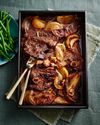
The Russian invasion of Ukraine has triggered Europe's largest population movement since the Second World War. More than four million people have left the country and a quarter of the population has been displaced. As a journalist, I have reported from many conflict zones, including Afghanistan, Iraq, Yemen, Syria, and Libya. But what I find striking about the war in Ukraine is the sheer scale of the number of women and children fleeing the Russian invasion.
For weeks, Ukrainian cities in the north, east, and south of the country have faced constant bombardment from Russian artillery. Many towns, villages, and communities have been flattened. Lives have been lost. Homes destroyed. Livelihoods overturned. Most of those trying to flee the brutalities of this war have been making their way west to the relative safety of Lviv – just 70 kilometers from the Polish border.
It is the city's main railway station which has best captured the human struggle of this conflict and the story of the Ukrainian people. It is a story of pain and sorrow. A place where hundreds of thousands of families have been torn apart as mostly women and children frantically try to board the overcrowded trains heading to Poland and beyond, while sons, brothers, husbands and fathers stand on the platform bidding farewell. Men of fighting age aren't allowed to leave the country. So, they say their goodbyes and head in opposite directions – uncertain of when, or if, they will ever be reunited with their families again.
This story is from the {{IssueName}} edition of {{MagazineName}}.
Start your 7-day Magzter GOLD free trial to access thousands of curated premium stories, and 9,000+ magazines and newspapers.
Already a subscriber ? Sign In
This story is from the {{IssueName}} edition of {{MagazineName}}.
Start your 7-day Magzter GOLD free trial to access thousands of curated premium stories, and 9,000+ magazines and newspapers.
Already a subscriber? Sign In

Hitting a nerve
Regulating the vagus nerve with its links to depression, anxiety, arthritis and diabetes - could aid physical and mental wellbeing.

Take me to the river
With a slew of new schedules and excursions to explore, the latest river cruises promise to give you experiences and sights you won’t see on the ocean.

The last act
When family patriarch Tom Edwards passes away, his children must come together to build his coffin in four days, otherwise they will lose their inheritance. Can they put their sibling rivalry aside?

MEET RUSSIA'S BRAVEST WOMEN
When Alexei Navalny died in a brutal Arctic prison, Vladimir Putin thought he had triumphed over his most formidable opponent. Until three courageous women - Alexei's mother, wife and daughter - took up his fight for freedom.

The wines and lines mums
Once only associated with glamorous A-listers, cocaine is now prevalent with the soccer-mum set - as likely to be imbibed at a school fundraiser as a nightclub. The Weekly looks inside this illegal, addictive, rising trend.

Jenny Liddle-Bob.Lucy McDonald.Sasha Green - Why don't you know their names?
Indigenous women are being murdered at frightening rates, their deaths often left uninvestigated and widely unreported. Here The Weekly meets families who are battling grief and desperate for solutions.

Growing happiness
Through drought flood and heartbreak, Jenny Jennr's sunflowers bloom with hope, sunshine and joy

"Thank God we make each other laugh"
A shared sense of humour has seen Aussie comedy couple Harriet Dyer and Patrick Brammall conquer the world. But what does life look like when the cameras go down:

Winter baking with apples and pears
Celebrate the season of Australian apples and pears with these sweet bakes that will keep the midwinter blues away.

Budget dinner winners
Looking for some thrifty inspiration for weeknight dinners? Try our tasty line-up of low-cost recipes that are bound to please everyone at the table.